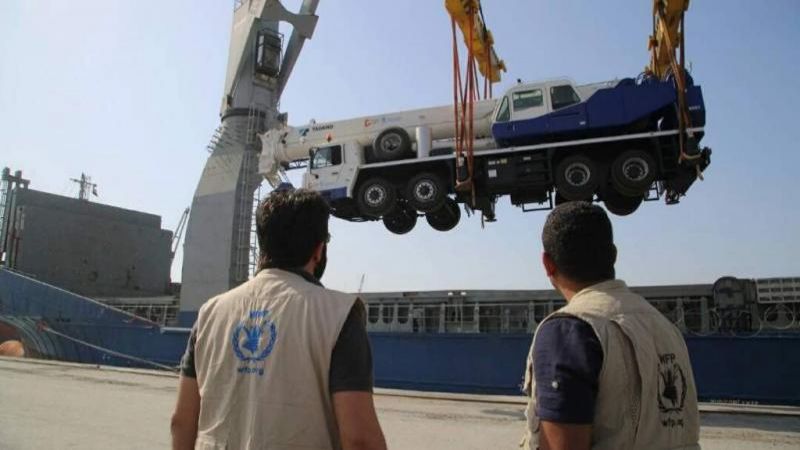
By Amy Lieberman
A temporary lifting of a blockade at one of Yemen’s most critical ports will end this week, pushing Yemen’s deteriorating humanitarian situation into an even more critical, uncertain state, the Norwegian Refugee Council told Devex this week.
More than 7 million people in Yemen — almost one-fourth of the country — are now entirely dependent on aid. But recent temporary blockades of the key Hodeida Port have presented major operational challenges for aid groups working to deliver emergency services. A partial reopening of Hodeida in December to commercial activity welcomed the passage of tons of food and fuel, but more than 17 million people in Yemen are still food insecure.
Now, a 30-day period that eased this temporary commercial blockade over Hodeida Port will expire on Jan. 19, without a clear resolution in sight. The Saudi-led coalition, which backs Yemen’s resigned … government and are fighting the Houthi revolutionaries …, first instituted a full blockade in November.
“What looked on paper to be a good policy for easing the blockade has done very little to lower prices of essential daily items like fuel and food,” said Norwegian Refugee Council country director in Yemen, Mutasim Hamdan, in a media release. “The instability caused by the coalition’s arbitrary policies, closing ports one day and reopening them on another, is making problems worse for the Yemeni population. Shipping companies, importers, and vendors are left without assurance that the port will remain open, and this is serving to sustain inflation that makes food unaffordable for most Yemeni people.”
Access in Yemen for humanitarian groups is already “unpredictable,” a Norwegian Refugee Council advocacy and protection adviser told Devex.
“The best way to describe access in Yemen is it is challenging and unpredictable. We experience challenges at every stage of the process, which covers bureaucratic impediments as per visas and permissions from authorities to deliver or establish permits for our staff to travel around the country,” said Suze van Meegen, an adviser working in Yemen since July. “We need a permit every time we move beyond the city limits.”
The temporary 30-day concession from the Saudi coalition was seen as a positive step by humanitarian actors in the short term, but provides no “long-term predictability,” van Meegen explained.
“The blockade over the last few months made access for people to the services and goods they need very unpredictable and have driven up inflation,” she continued. “We have had no official confirmation about what will happen as of the 19th of January, which leaves Yemen in a highly unpredictable situation and vulnerable to more inflation and more hunger.”
The Norwegian Refugee Council and sixteen other aid agencies issued a joint statement this week calling for the complete and “unconditional” opening of Hodeida port.
Yemen, almost entirely dependent on imported food, medicine and fuel, has relied on Hodeida as an entry point for 80 percent of all of its imports historically. The blockades have contributed to a surge in food and fuel prices last year. Some people in rural areas, including displaced people, are not able to find food in local markets and must travel to larger commercial hubs, says van Meegen.
“We see greater inflation making basic supplies unaffordable for the average Yemeni, edging closer to famine,” van Meegen said.
Safety concerns and permit impediments — it took van Meegen nine weeks to secure her visa — limit movement for the Norwegian Refugee Council’s 15 international staff. The country’s 120 national staff — who also may require permits to travel across their own country — are tasked with carrying out deliveries of the organization’s emergency aid. The INGO reached 650,000 people last year.
The United Nations estimates that more than 22 million people are in need of humanitarian assistance in Yemen, while 8 million are considered on the brink of famine.
The Norwegian Refugee Council purchases its goods from commercial markets within Yemen, and has not yet experienced a delay on receiving food or other life-saving materials, even as it relies on suppliers that ship in products internationally. It has, though, had to limit some of its work across the nine governorates of the country.
“We can’t reach as many people as we hoped for, in terms of delivering health programs. There is a huge impact to swiftly move medicines and that is a huge problem,” van Meegen said.
The Norwegian Refugee Council is not alone in facing these obstacles.
“I would feel comfortable saying that all organizations, every U.N. agency, every INGO, is experiencing the same challenge we are,” she said.
Source: devex, Edited by Website Team